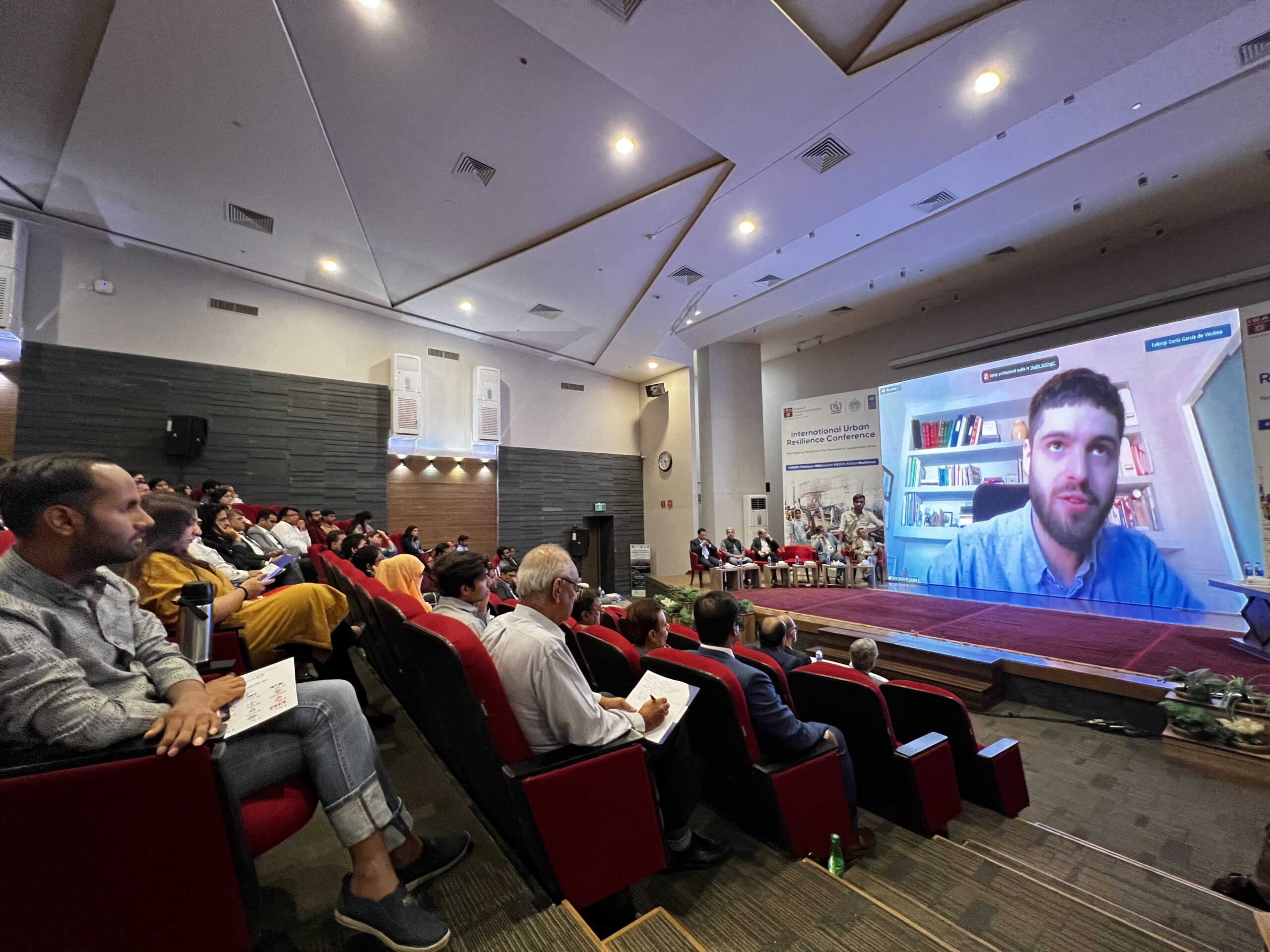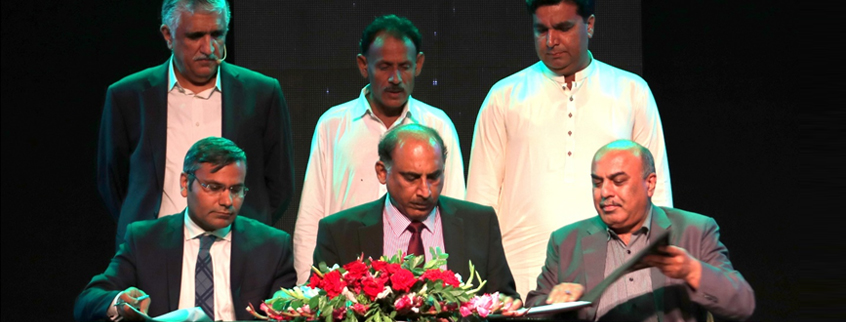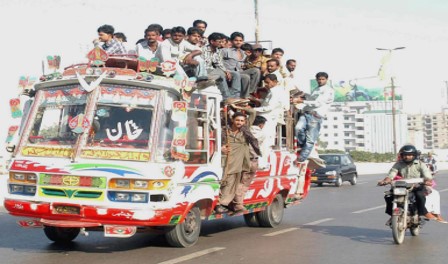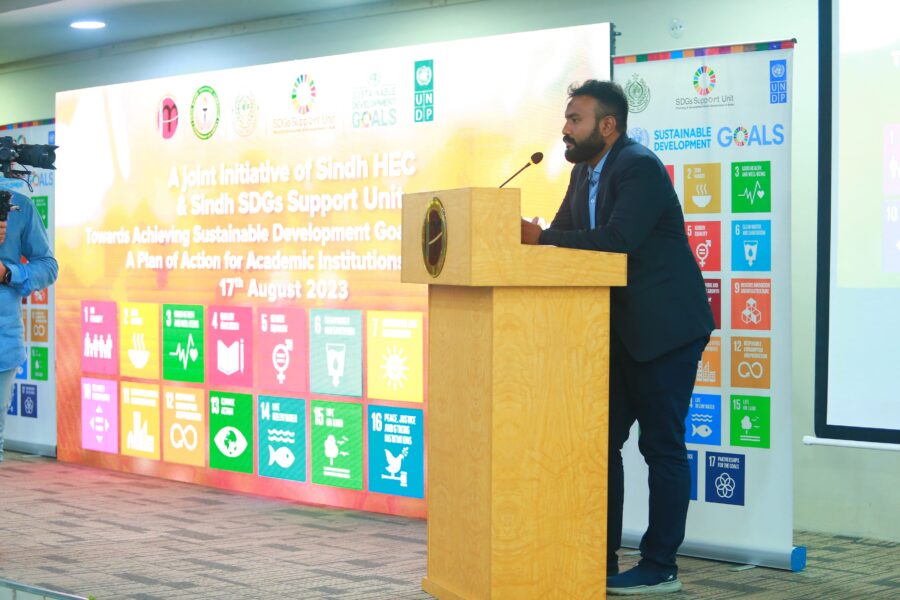Introduction and Thematic Aims:
The Urban Resilience Conference which aimed to bring together local and global perspectives with regard to the transition to sustainable cities was successfully held on the 12th of October, 2022. UNDP and IBA were the main facilitators of the conference, which was held at the IBA City Campus’s J.S Auditorium and spanned the whole day. The conference was a means of social innovation that facilitated inclusive participation of stakeholders from the government, private sector, civil society, and academia to deeply engage in inclusive participation and enable community collaboration. It called for capacity building and advocacy; presented evidence-based research such as the ‘Rawalpindi Resilience Roadmap’ and ‘Migration, Livelihoods, and Resilience in Karachi’ study and discussed pilot initiatives such as water conservation and rainwater harvesting in Rawalpindi and Rehabilitation of RO plants, the establishment of school libraries, Challenge Cup grants for community solutions on gender, digital education and waste disposal.
The three segments:
Urban Development
The conference comprised three main segments, after the introductory proceedings. The first focused on the link between Urban Resilience and Development from a local and global perspective, shedding light on the study conducted by IBA and UNDP titled, Karachi: Urban Resilience and Development along with a similar study and findings from a study conducted in the Philippines, as well as perspectives from Jonghyo Jay Nam, Chief Technical Advisor, Climate Change, UN-Habitat Regional Office for Asia and the Pacific and Jahangir Soomro, Project Manager, UN-Habitat. Aqsa Jawed, Lecturer at IBA and the principal investigator of the study Karachi: Urban Resilience and Development, said that in the five thematic areas which included economics and society, access to infrastructure and public services, health and wellbeing, governance and leadership, gender and agency, there is an overarching theme of lack of access to opportunities for internal migrants and through these findings, better opportunities and facilities can be extended to them across these five arenas. The Philippines, much like Pakistan, as presented by Floradema C. Eleazar, Team Leader Climate Action Programme, UNDP Philippines, is vulnerable to climate hazards and as she quoted ‘every year we are experiencing two to three weather events,’ the way forward to greater urban resilience would be to develop effective tools, capacity development, and policies to mitigate the climate challenges. This contrast to the Philippines as well as other such regions around the world helps situate and better understand Pakistan’s position and efficacy in terms of climate change and urban resilience.
Urban Planning
The second segment centered around key issues around better urban planning which commenced with Dr. Noman Ahmed, Professor at NED University, talking about the planning and project development that make urban planning effective, such as the employment of scientific procedures, appropriate mobility of resources and setting of goals and targets to be achieved. The safeguarding of public interests lies at the core of sustainable urban planning and resilience which is being worked towards. In his words, “real sustainability is created when the various things that the city makes have the capacity to reach out to people and causes minimal impact on the climate.” This relays a deeply human-centered approach toward achieving urban and climate resilience and development. Similarly, Nazir Ahmed Issani Memon, Project Director, of the Karachi Neighbourhood Improvement Project, supported by the World Bank and P&D Department Government of Sindh, spoke about the project’s focus on three key areas in Karachi (Saddar, Malir, and Korangi) and the major features of urban elements that are being initiated there.
Solutions for Climate-Induced Disasters
The third and final segment of the conference focused on climate-resilient cities with experts from urban resilience and presented views from other provinces to help derive policy solutions for climate-resilient cities.
Intersectional Work, SDGs, and Resilience
Intersectionality describes the ways in which systems of inequality based on various structural and demographic factors such as gender, race, ethnicity, class, and other forms of discrimination “intersect” to create unique dynamics and effects (Crenshaw, 1989). Throughout the conference, a recurrent focus and overarching theme was that of observing climate and weather-related catastrophes in Pakistan and beyond through a cross-cutting lens that incorporates influences from various social factors that impact a society’s progress. As Najam Ahmed Shah, Secretary, Local Government and HTP Department, Government of Sindh, in his conclusory remarks, pointed out that a lot of work is being done across various sectors, sections, and structures, the Sustainable Development Goals of 2030, also operate in an interconnected manner. Hence, the conference aims, while focusing on SDG goal 11, i.e. Sustainable Cities and Communities primarily, also effectively, in fact, tackled and presented tangible work being done toward achieving SDG 3 (Good health and Well-being), SDG 4 (Quality Education), SDG 6 (Clean Water and Sanitation), SDG 7 (Affordable and Clean Energy), SDG 8 (Decent Work and Economic Growth), SDG 9 (Industry, Innovation, and Infrastructure), and SDG 13 (Climate Action). As such, the conference findings and observations present a ray of hope for Pakistan as a resilient set of communities that is centering people at the heart of all efforts in urban sustainability. As articulated by Muhammad Iqbal Memon, Commissioner of Karachi Division, as he defines urban resilience — is the capacity of individuals, communities, and organizations to survive, adapt, and then thrive. In light of this conference and its proceedings, Pakistan’s urban landscape presents a transition from mere survival to adaptation and thriving, with the work in progress.
Author details:
Imaan Azeem Uqaili studies Social Development and Policy at Habib University and is currently in her senior year. She has interned for UNDP as a research and policy intern.



